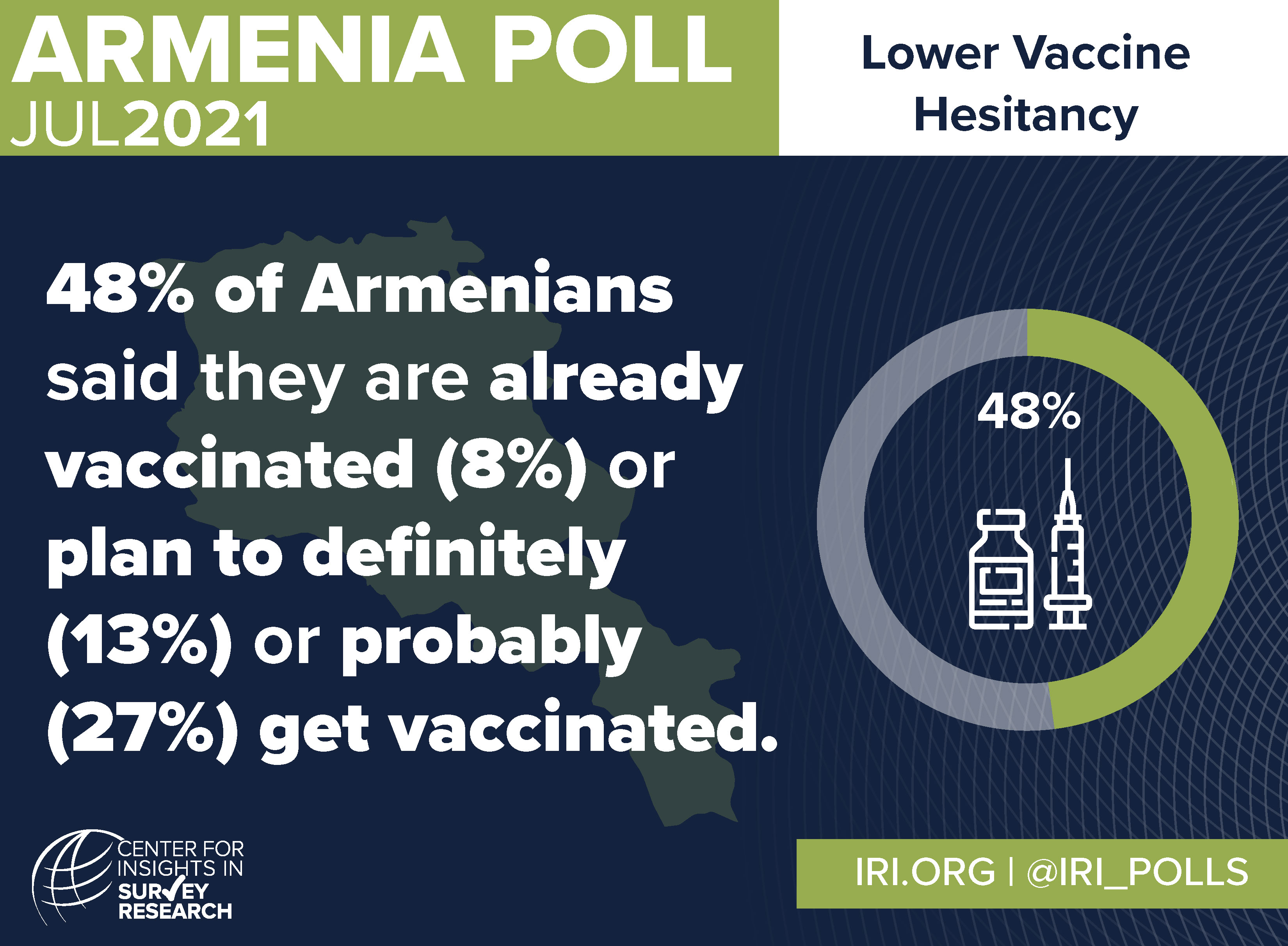IRI Armenia Poll Shows Satisfaction with Parliamentary Elections, Lingering Security Concerns, Growing Support for COVID-19 Vaccinations
Yerevan, Armenia – A new nationwide poll in Armenia by the International Republican Institute’s (IRI) Center for Insights in Survey Research shows strong support for the outcome of recent parliamentary elections, concerns over the fragile security environment, and less hesitancy for vaccinations to fight COVID-19.
When asked about the June parliamentary elections, 63% of Armenians said they were satisfied with the results.
“Such strong satisfaction with the election outcome is a welcome development in any democracy,” said Stephen Nix, Director of IRI’s Eurasia Division. “With such satisfaction comes the sense that the parliamentary elections results in June were representative of the will of the people.”
However, the tenuous security situation in the aftermath of the 44-day war remains a serious concern. When asked about important issues for the government to address, 62% of Armenians said that solving security issues was one of their top two priorities.
“The people of Armenia are still very concerned about the security situation in the wake of the conflict with Azerbaijan and the government will need to take action to allay any fears about renewed violence,” said Nix.
Regarding the pandemic, previous vaccine hesitancy has subsided. In total, 48% of Armenians said they are already vaccinated (8%) or plan to – definitely (13%) or probably (27%) get vaccinated.
“For the fight against COVID-19, the Ministry of Health should continue its public outreach to encourage more people to become vaccinated,” Nix said.
Methodology
The survey was conducted on behalf of International Republican Institute’s Center for Insights in Survey Research by Breavis (represented by IPSC LLC).
Data was collected throughout Armenia between July 21 and July 30, 2021, through phone interviews, with respondents selected by random digit dialing (RDD) probability sampling of mobile phone numbers.
The sample consisted of 1,504 permanent residents of Armenia older than the age of 18. It is representative of the population with access to a mobile phone, which excludes approximately 1.2% of adults.
The sample has been weighted for 11 regions, age, gender, and community type according to the 2018 Yearbook of the Statistical Committee of Armenia. The margin of error does not exceed plus or minus 2.5-points for the mid-range of the full sample at the 95% confidence level.
The response rate was 27% Charts and graphs may not add up to 100% due to rounding.
The survey was funded by the U.S. Agency for International Development.
Top